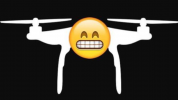Chaosrider
Well-Known Member
Your comments prompted a new line of thought for me. This coming week I'm going to take the plunge into Manual mode for my FPV. I'd like to do some sim flight of that first, but Androids are second class citizens when it comes to the FPV sim.I think you're mostly right. A computerized, GPS equipped drone with IMU can be super easy to hover, or to move from one spot to another.
Until it suddenly doesn't behave the way you expect.
The very same automation that makes it so easy to fly will hide things from the pilot. It's easy to miss the effect of the wind while the autopilot can compensate for it, but that fact may increase a pilot's surprise when the wind becomes too strong for the autopilot to hide its effect.
The "crash and flyaway assistance" forum has plenty of stories that say something like "My drone has always behaved perfectly, until yesterday, when I took off and it suddenly spiraled away from me at high speed!" When everything's working right, it's easy to fly without understanding the coordination between the magnetic compass, IMU, GPS, and autopilot. But if the IMU is initialized in a magnetic field that causes the compass to have a heading that's way off, things will quickly spiral out of control when flight starts, and many pilots won't have a clue.
Similarly, the first time a pilot experiences ATTI mode can be quite a surprise.
For these situations, it's not skill developed through many flight hours that will avoid disaster, because one can fly many, many hours without experiencing these problems. But safety from these sorts of issues is more a matter of education, most of which can happen when you're indoors without your drone.
Would flying a Mini-2 in ATTI mode be anything like flying an FPV in Manual mode?
Or is that an apples and lugnuts comparison?
Thx!











